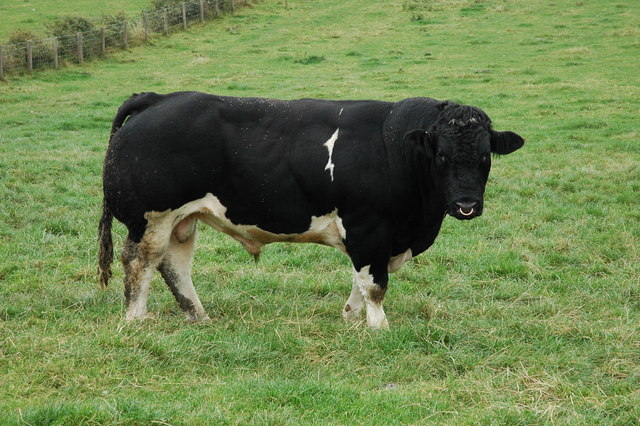All Your BS is… Vegan?

The term “BS” is a shorter, more family-friendly way to reference a term that is actually the combination of two shorter words — “bull,” which I can safely spell out in a family-friendly publication such as this one, and… another word which I can’t, given that same parameter. That’s okay, though, because today’s story is about the etymology of “BS,” and specifically, the “bull” part.
Because if you’re thinking it has to do with one of those creatures pictured at the top of this email, you’re probably wrong.
“BS,” as you almost certainly know, is a crude-but-enjoyable way of saying something is nonsense or otherwise false. In English, we have plenty of other words to express the same idea, but few come with the same denotative disdain as “BS.” It’s evocative of a kind of gross mental image, like the one below, involving male cattle taking a poop. To some degree, that makes sense; if you’re stating that someone else’s opinion is BS, for example, you probably value it as much as you would a piece of bull dung. But if you dig deeper — not literally, yikes! — the phrase doesn’t quite work. Bull turds are gross and, fertilizer-value aside, probably something you wish to avoid, but there’s nothing about them that’s fake or insincere. If anything, vets and ranchers can probably determine a lot of truth from bull poop if need be.
So why do we associate lies with bull droppings? Don’t blame the bulls — blame a collision of origin languages. The term “BS” (not the initialism, but the actual word) dates back to the early 1900s, most likely around 1914, according to Merriam-Webster. At the time, bulls — the animals — weren’t necessarily thought of as liars or anything like that, but “bull” wasn’t only used to describe those animals. At around the same time, a second meaning for “bull” emerged — one meaning “insincere, trifling, or deceptive talk,” according to the Online Etymology Dictionary. That term, per EtymologyOnline, was “apparently from Old French bole ‘deception, trick, scheming, intrigue,’ and perhaps related to modern Icelandic bull ‘nonsense,’” and has nothing to do with the animal of the same name.
So it’s possible, if not likely, that the “bull” part of “BS” has no connection to the bovines of the male persuasion. It’s probably just a coincidence that the animal shares a name with some repurposed Old French word. I guess we owe a lot of bulls an apology?
Bonus fact: Bentley, the car maker, has leather seats — and all of that leather comes from bulls. Why not from (female) cows? Blame the reproductive process. Betley insists on hides without blemishes, and as Autocar explains, bulls are therefore better “because bulls don’t get the stretch marks cows do.”
From the Archives: How Cows Mooved Through Manhattan: That’s not a typo, it’s a dad joke.
